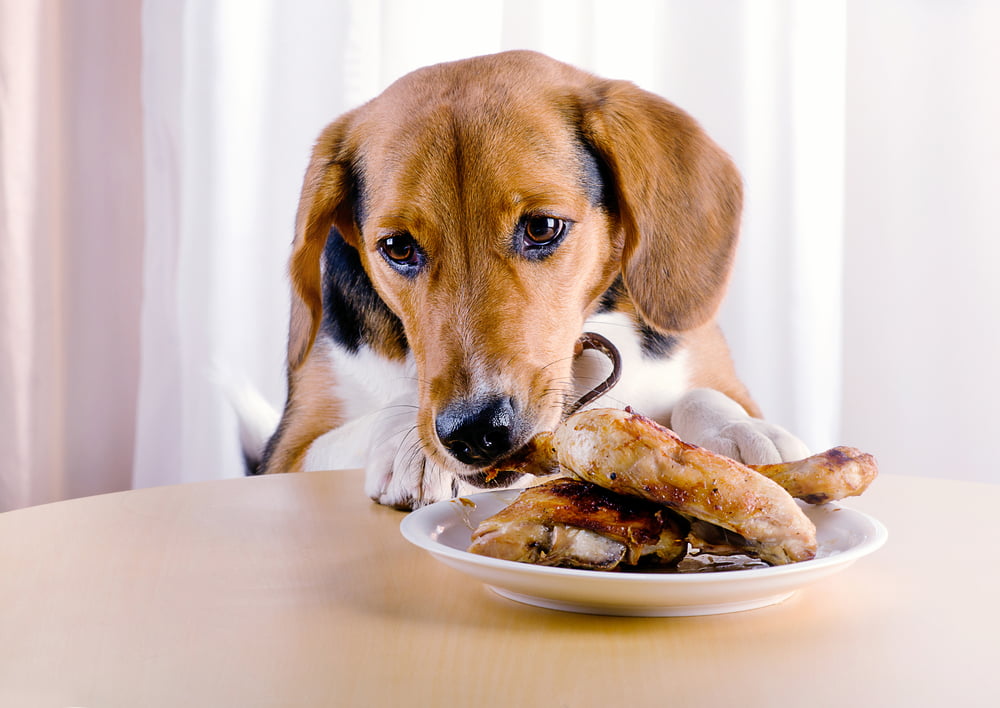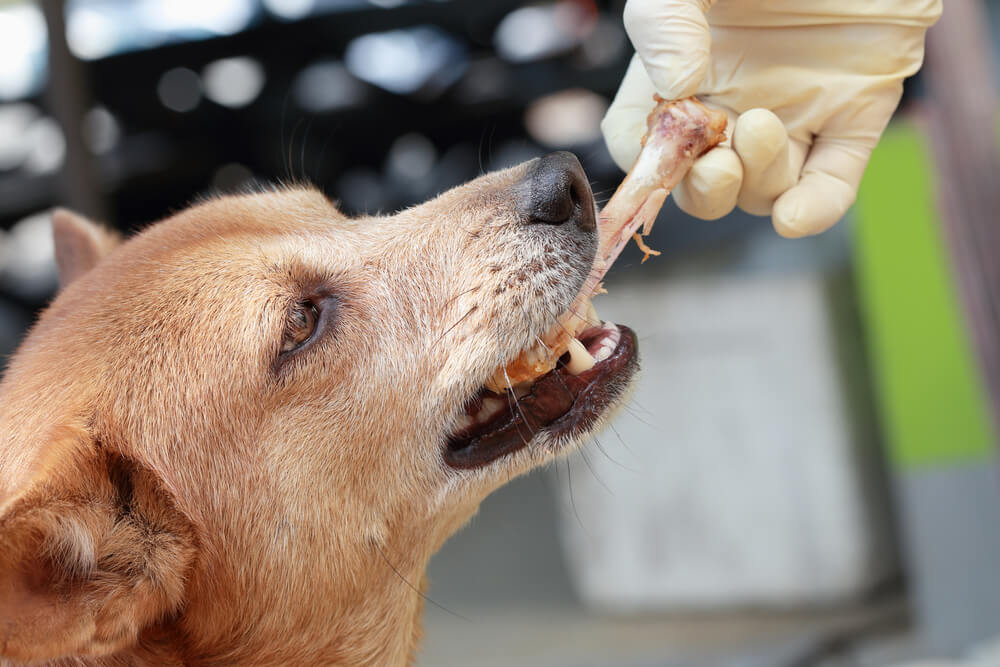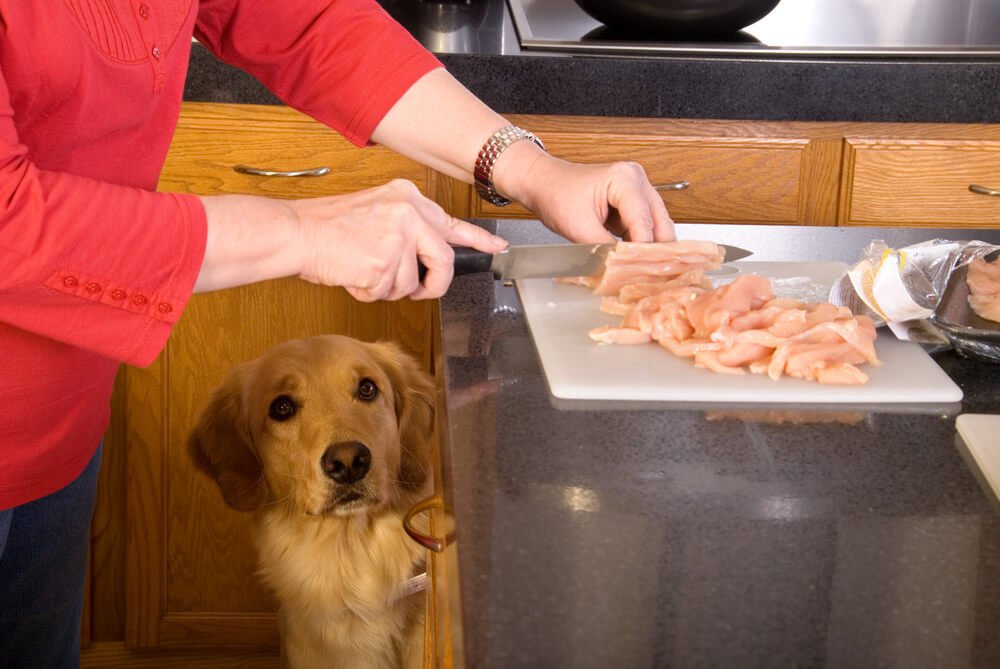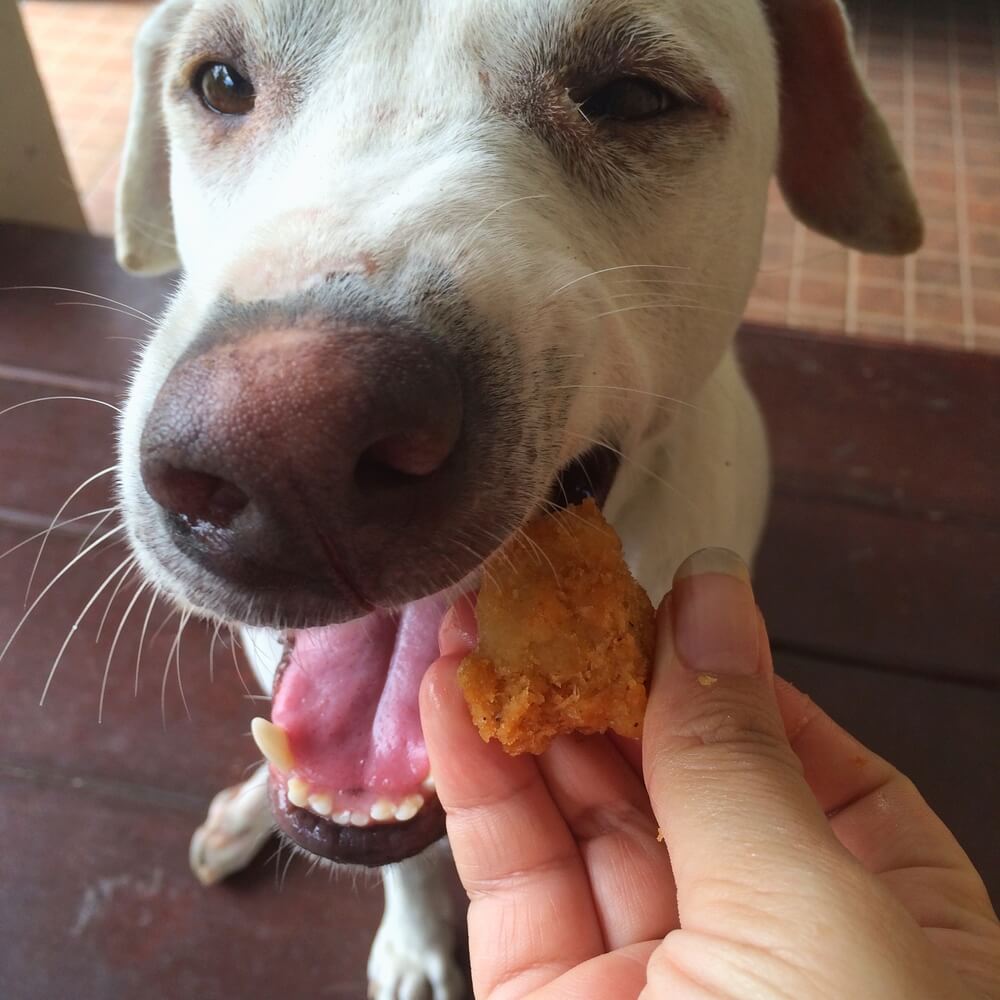 Given that chicken features as one of the most common proteins in commercial dog foods, it goes without saying that yes, dogs can eat cooked chicken. Chicken is a low-fat, high-protein food that can feature as part of a well-rounded diet for your dog, alongside other protein sources, such as turkey, pork or beef; vegetables and even kelp, etc, but it is important to note that several factors should be considered before giving your pooch a poultry-based treat.
Given that chicken features as one of the most common proteins in commercial dog foods, it goes without saying that yes, dogs can eat cooked chicken. Chicken is a low-fat, high-protein food that can feature as part of a well-rounded diet for your dog, alongside other protein sources, such as turkey, pork or beef; vegetables and even kelp, etc, but it is important to note that several factors should be considered before giving your pooch a poultry-based treat.
Which bits of the chicken are safe to feed my dog and which bits aren’t?
Bones

Cooked bones easily splinter and can damage your pup’s digestive tract.
Chicken bones are not safe to feed to dogs. Cooked bones easily splinter and can damage your pup’s digestive tract. Uncooked bones are less fragile but can lead to blockages in the gut. Yes, dogs love the taste of bones, but this sadly does not make them a safe choice.
Chicken Nuggets
Chicken nuggets are often high in salt and fat, whether store-bought or from your favorite fast-food chain. Whilst salt is a crucial part of your pup’s diet; too much can be problematic. Healthy animals usually can cope with small amounts of excess salt, but if your pup has issues with their heart or kidneys, salt may worsen them. Therefore, whilst they are a tasty treat for us, it’s best to avoid sharing your nugget box with your pup!
Feet
Chicken feet are commonly sold in a dried form in pet stores for your pup to snack on between meals. Chicken feet contain chondroitin and glucosamine, which can be helpful for your pups’ joints, and the act of chewing on them can help promote good dental health. Your dog should always be supervised when given a chicken foot as a treat. The bones they contain are tiny, so the risk of obstruction is very low, providing your dog properly chews on the foot. However, if your dog is one to swallow things whole, then chicken feet should be avoided due to the risk of an obstruction of the food pipe. Chicken feet are not suitable for overweight dogs, those prone to pancreatitis, or those with chicken allergies.
Broth
If a chicken thigh has been poached in unsalted water, this broth will not be harmful. However, care should be taken to ensure that no salt is used to season a chicken carcass or breast broth, as too much salt can harm your pup. Broths made with a whole carcass can be rich and fatty, leading to tummy upsets or even pancreatitis in some dogs.
Thighs

Poaching chicken thighs in unseasoned water or dry roasting is best.
The chicken thigh is an excellent source of lean protein for your pup. Take care to prepare the thighs appropriately for your dog – as much as we like a gourmet meal with well-seasoned and spiced chicken, this will be too much for your pup’s digestive system. Poaching in unseasoned water or dry roasting is best, or if you really can’t help but spice things up a bit, adding a little bit of spearmint should do the trick.
Can I feed my dog only chicken?
The simple answer to this question is no. The chicken alone does not provide your dog with all the vitamins and minerals that your dog needs. Feeding only chicken will lead to your pup developing nutritional deficiencies, making your pet very sick. Ideally, you should be feeding your dog recipes that have been formulated to meet AAFCO’s standards for a complete & balanced diet. If you are keen to make your dog’s food yourself, the best thing to do is to find a veterinary nutritionist who will be able to guide you in making a balanced diet to ensure your dog doesn’t miss out on any essential vitamins or minerals.
When is chicken not good for dogs?

For most dogs, cooked chicken thighs can make a harmless addition to your pup’s diet, providing it is prepared in a dog-safe way.
Lean, appropriately prepared chicken thighs will not be detrimental for your dog if fed in moderation, providing they do not have an allergy. As discussed, feeding other parts of the chicken can carry certain risks. However, chicken represents one of the most common dietary allergens for dogs. This can lead to gastrointestinal problems for your pup termed a “food responsive enteropathy“, discussed below.
“Food responsive enteropathy”
In dogs, persistent vomiting and diarrhea termed ‘chronic enteropathy”, is a common presenting complaint at the veterinary clinic. In many of these dogs, a component of this disease process is sensitivity, or allergy, to a dietary protein. Chicken can often be a culprit in these cases. Suppose your dog is suffering from recurrent bouts of vomiting and diarrhea. In that case, it’s essential to get this checked by your local veterinarian, who will be able to work to get to the bottom of the problem. Often this involves blood testing to check organ health and imaging of their guts before an “elimination diet trial“, where your pup is fed a new novel protein diet for several weeks to see if the signs clear up. Food allergy blood testing is considered unreliable.
Concluding remarks
Overall, for most dogs, cooked chicken thighs can make a harmless addition to your pup’s diet, providing it is prepared in a dog-safe way and you offset the extra calories to avoid weight gain. If you have concerns about whether chicken is suitable for your dog, speak to your veterinarian, who will be able to offer you advice tailored to your dog’s specific needs.


